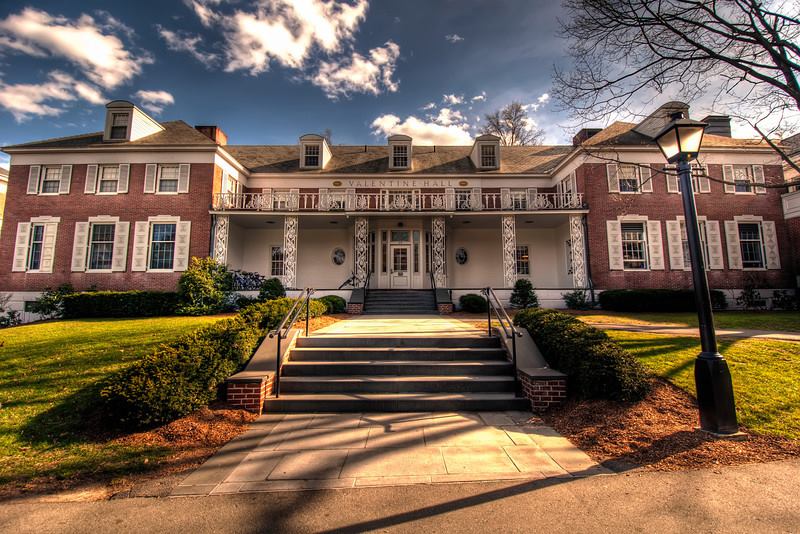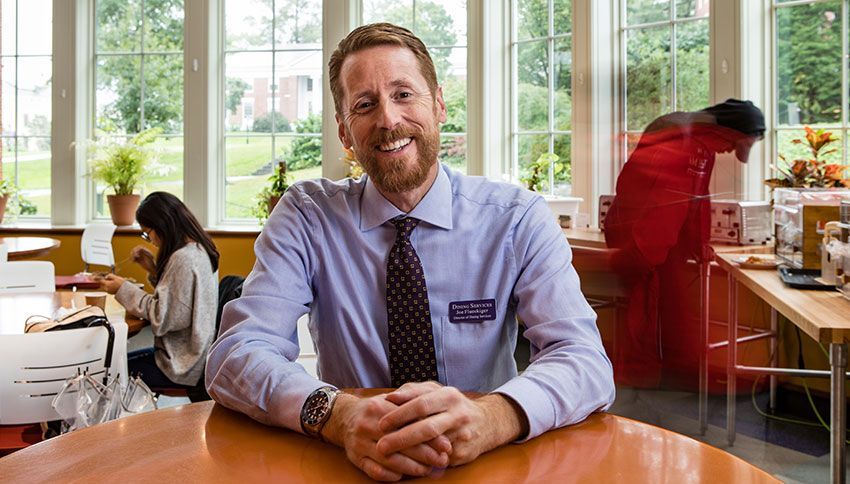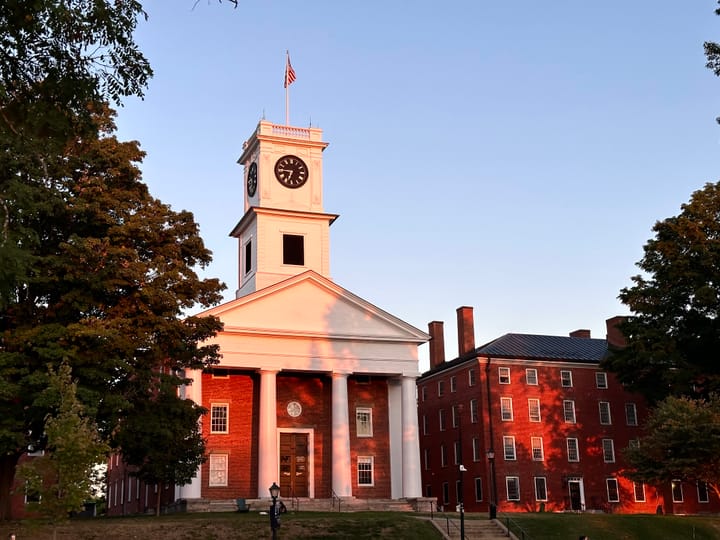Valentine Dining Hall Moves Forward Following Flueckiger’s Resignation
After Director of Dining Services Joe Flueckiger resigned last month, hiring plans are underway for a new head of dining operations. Administration and dining leadership spoke to The Student about this process and their visions for the future of Amherst dining.

After six years as the head of the college’s dining operations, Joe Flueckiger resigned last month and began this month as director of retail dining at Harvard. Following his departure, the college is searching for both an interim dining director and a permanent replacement.
Ralph Johnson, the executive director of campus operations, took on Flueckiger’s duties after his departure and is collaborating with administration to develop an interim structure. Currently, they are compiling a search committee of staff, faculty, and students to evaluate candidates for the interim director position, Chief Financial and Administrative Officer Mike Thomas said.
The interim director will likely be hired from within the college, Dining Hall Supervisor Brian Peters said. The college hopes to recruit candidates with an understanding of departmental needs and dining operations, rather than opting for outside hires.
In the meantime, Valentine Dining Hall is not expected to undergo any significant changes or disruptions due to Flueckiger’s departure, Thomas said. Administration and dining leadership are working to maintain Val’s operations, while also keeping their products for students consistent.
Similarly, Val employees said they have not experienced major changes in their day-to-day responsibilities, dining operations, or staff organization. However, many employees said they were initially shocked by Flueckiger’s decision to step down, given that it was sudden and unexpected. Val managers, supervisors, and staff were only informed of his resignation on the day of his departure, Peters said.
“I guess him leaving was a little weird, because it was very abrupt,” Retail Server and Supervisor Jeramie Marquez said. “We’re kind of in the middle of this [transitional] period. We’re essentially trying to make dining services a better place to work [and improve] employee satisfaction. [Flueckiger] was kind of spearheading that whole thing. It had just started maybe a year ago, and we still have what they say is a long way to go.”

As of now, operational budgets are fixed, and the four-week menu rotation is set in stone, Peters said. While no changes are being introduced to Val, Peters anticipates the implementation of new initiatives and programs after a new director is hired.
“I think things are kind of at a stall at the moment, especially long term vision-wise, because I'm sure [administration and management] want to get the input of a new director and where they would want to see growth and change in the department,” Peters said.
As the search for a new director continues, Val employees will have the opportunity to provide their feedback on the selected candidates, server Robyn Donovan said. While Donovan values communication and transparency, server Sevilla Kinney is looking for someone who is organized and works well under pressure.
Thomas, the chief financial and administrative officer, emphasized the importance of strong leadership qualities in a candidate.
“We are looking for a leader who can help us transform into the new student center and dining commons, as well as deliver great food to our students,” Thomas said.
Moving forward, Peters hopes to collaborate with students and staff to improve Amherst dining and better allocate resources. For instance, he believes conversations about Val’s food selections — such as implementing more nutritional, gluten-free, or halal options — should not be limited to dining services or budgetary committees, but rather should include the perspectives of students.
“[Let’s] get everybody involved at the table to begin with and discuss what’s needed,” Peters said. “We want to put the resources in the best possible places, and we want to have the best possible experience with students — but what does that mean, and what does that look like? It’s all a big conversation.”





Comments ()